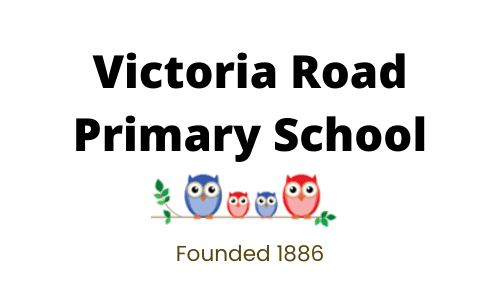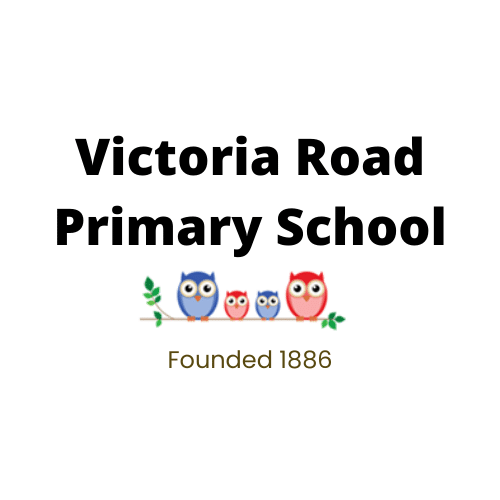Pastoral and Wellbeing
Mental Health & Wellbeing
Our Mental health lead in school is Mrs Gemma neal
mental health & wellbeing
At Victoria Road Primary School, the emotional wellbeing of children is just as important as their physical health. Good mental health allows children and young people to develop the resilience to cope with whatever life throws at them and grow into well-rounded, healthy adults. At Victoria Road Primary School, we are committed to supporting the emotional health and wellbeing of our pupils, staff parents and carers. We know that everyone experiences life challenges that can make us vulnerable and, at times, anyone may need additional emotional support.

Mental Health & Wellbeing
“It’s healthy to admit you’re not ok. ‘It’s ok not to be ok”
Pastoral Lead
At Victoria Road Primary, your child’s mental health and wellbeing is at the core of our values. Sometimes in life things happen beyond are control and those around can often struggle, whether it be short term or long term challenges. As a school we are invested in your child’s future and happiness, if you feel there something that is stopping your child achieving their full potential there is support available. Miss Illidge, our Pastoral Lead, is dedicated and passionate to work alongside parents, teachers and external agencies to support the children and young people of Victoria Road.
Each case is discussed individually and assessed to the needs of the child and current circumstances. We discuss such cases at the end of every half term with our Pastoral Team, Mrs Roberts, Mrs Neal and Miss Illidge.
Some of the support we can offer and not limited to;
Classroom adaptations
Soft landing /Soft exit
Brain Breaks
Mental Health Team (NHS)
Sensory Sessions
Forest School
Mindfulness Activities
Baking
Friendship Groups
Lego Therapy
Talking and Drawing
Book Club
If you feel that your child will benefit from Pastoral Support, please call the office to arrange a meeting with Miss Illidge.
Mental Health First Aider
The role of a Mental Health First Aider is to understand the important factors that can affect mental health, and to identify the signs and symptoms for a range of mental health conditions.
At Victoria Road Primary School, our Mental Health First Aiders are: Mrs Emma Roberts & Mrs Gemma Neal
ELSA
The Emotional Literacy Support Assistant (ELSA) project was designed to build the capacity of schools to support the emotional needs of their pupils from within their own resources. It recognises that children and young people learn better and are happier in school if their emotional needs are also addressed.
ELSA- Emotional Support Literacy Assistant, Miss Illidge or Mrs Dorgan will spend time with your child building a relationship and talking about some of the challenges your child may face. This is a 6 to 12 week programme working on individual targets.
EMHP
Educational mental health practitioners (EMHPs) work across education and healthcare to provide mental health support for children and young people in schools and colleges.
This role of an EMHP is to provide mental health and wellbeing support for children and young people. At Victoria Road we provide weekly early intervention within our school setting.
Our EMHP practitioner is Kristen Vogt-Johnson
Five ways to wellbeing
Research has found that taking action in the following 5 areas can improve positive mental health and wellbeing. Although not intended to be ‘quick fixes’, the suggestions below could help you to nurture your own wellbeing and the wellbeing of your family. Below you will find the 5 ways to wellbeing and ideas and activities you could try with your families.
1. Connect with other people
Positive, happy, respectful relationships are important for your mental wellbeing. They can help you to build a sense of belonging, give you an opportunity to share positive experiences, opinions and goals and provide emotional support or allow you to support others with any issues, including mental health.
To connect more with people, you could:
- Try and make time to sit together an eat when everyone is at home
- Arrange a zoom quiz or gathering with close family and friends
- Dig out an old board game and have a games night without electronics
- Put aside some time each week to call someone you haven’t checked in with in a while
- Join a social media group that shares an interest of yours
- Write letters to family and friends that you aren’t able to see much of in the current pandemic
2. Be physically active
Being active is not only great for your physical health and fitness, evidence also shows that it can really improve your mental health and wellbeing by raising your self-esteem and helping you to set goals and feel motivated to achieve them. It also causes chemical changes in your brain which can help to positively change your mood.
To become more active, you could:
- Use free websites and apps that offer fitness and exercise guides to follow https://www.nhs.uk/live-well/exercise/couch-to-5k-week-by-week/
- Try GoNoodle with the kids – it’s free to sign up and full of fun videos https://www.gonoodle.com/good-energy-at-home-kids-games-and-videos
- Download some walk and cycle paths and make the most of the wonderful coastline we have on our doorstep – maybe you could turn it into a nature walk or ‘eye-spy’ walk with the children, or download a free music streaming app and just take some time to yourself https://www.visitsouthport.com/things-to-do/walking-cycling
- Check out the NHS website https://www.nhs.uk/live-well/exercise/ for advice and guidance of what is available in our community and nationally
- Talk to friends or colleagues about starting a new fitness activity together, even virtually!
3. Learn new skills
Learning new skills can improve your mental wellbeing by boosting your confidence and self-esteem, helping you to build a sense of purpose and achievement and possible helping you to connect with others with the same interests.
To begin learning a new skill, you could:
- Try learning to cook something new – there are lots of free recipes online and on social media channels, or you could ask friends and family members to share their favourite recipes.
- Start a new DIY project – Pintrest is a free app that is full of cheap and simple DIY projects for around the home and garden
- Download a free or affordable app to help you start to learn a new language
- Try a brand new hobby such as painting, sewing, starting a jigsaw, writing a short story or starting a blog, vlog, or your own Instagram account to share your interests with others
- Learn more about recycling and reducing the use of plastic and pass on your knowledge to friends and family (and school!)
4. Give to others
Acts of giving and kindness towards others can improve your wellbeing by creating positive feelings and a sense of reward, giving you a feeling of purpose and self-worth and helping you connect with people around you. The acts of kindness can be big or small, all that matters is that you feel connected to the act and the person or people it helps.
To give to others you could:
- Allocate time in your week to check in with someone who lives alone or is struggling
- Offer your skills or advice to someone who needs help with a project
- Share what is working well in your home, with your job or with your children with others that may need support
- Check out your local volunteering service to offer your time to help others.
- Raise money or awareness with your family and close friends for a specific charity or awareness event.
5. Take notice of the present moment (mindfulness)
We can all find it hard to stop in our busy lives and think about what is important to us. But paying more attention to the present moment, which includes your thoughts, feelings and emotions, your own body and your surroundings (both immediate and world-wide) can improve your mental wellbeing. This awareness can be called ‘mindfulness’. Mindfulness can help you to stop and appreciate the smaller things in life and make you appreciate what you do have. There are many ways to being practicing mindfulness and connect more with yourself and the world around you, from intricate colouring in, to sitting quietly in your favourite space in the home or garden, to meditating at the start or end of your day. Your children can probably tell you about some of the mindful activities they have tried in school too!


